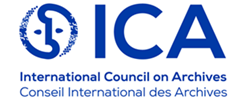21st SEAPAVAA Conference
3-8 April 2017, Manila, Philippines
“Imagining an AV Archive of the Future”
There is a popular, and grossly incorrect, assumption that archives are all about the past. Nothing could be further from the truth. Rather, the archives is “an opening to the future, the depository of a promise, a hope that there something to come.” (Caputo, 1997). Archives by their very nature must be the most forward looking of organisations enabling the society of the future to make sense of where it came from, how it got there, and what it can do and should strive for. As such, the question of the archives is not to be separated from the question of the future, both pragmatically and theoretically speaking.
This question of the future is a question of sustainability. With continuously changing technologies, socio-political landscapes, industry developments, market structures, professional standards, media productions, skill requirements, resources, and stakeholder expectations and community needs, how can an audiovisual archive position itself to be in the right shape, with the right services, at the right time? How can they remain relevant amidst all these changes?
It is also a question of identity. What does the audiovisual archive of the future look like? How will it utilise future technologies and consequently change its functions and processes? Where can we locate the archive in relation to other institutions? What would be its role in specific communities? How do our various users envision future engagements with the archive? How will it be shaped by environmental and cultural shifts? What would the next generation of av archivists be like? Where will they be coming from and how will they be trained? Will archival principles remain the same or will new valuations emerge?
Ray Edmondson (2016) reminds us that “the history of our field teaches us to approach predictions with scepticism, for the only sure guide we have is accumulated experience.” As the annual SEAPAVAA Conference enters its third decade, it seeks to address these by gathering different perspectives during its two-day Symposium. It aims to look at past successes and failures together with present opportunities and dilemmas to challenge archivists and their stakeholders in imagining and shaping the future of the field and the profession. That is, to answer Rick Prelinger’s (2015) challenge – “could we, as archivists [together with our stakeholders], point ourselves toward an agenda that we wish to make real?"
SEAPAVAA invites all who are actively engaged with the conference theme – Imagining an AV Archive of the Future – to submit proposals. We are looking for presentations that explore the following broad topics :
- considerations and strategies with regards to sustainability of audiovisual archives
- possibilities with future technologies in audiovisual archiving
- innovations in audiovisual archiving practice
- case studies on change management and long-term planning in audiovisual archives
- directions in audiovisual archival education and profession
- roles and paradigms of audiovisual archives in relation to a changing society
- movements in audiovisual archiving philosophy and practice
- perspectives on the future of audiovisual archives from various stakeholders (content producers, filmmakers, broadcasters, scholars, librarians, users, etc.)
Other thematically related proposals are welcome for consideration.
SUBMISSION:
Deadline of submission of proposals: 9 January 2017
Notification of accepted proposals: 23 January 2017
Deadline for confirmation to present: 6 February 2017
Symposium proper: 5-6 April 2017
1. Submit proposal in English via e-mail as a MS Word file by 9 January 2017.
2. The proposal should include:
- Title of proposal
- Abstract, maximum of 250 words
- Name and Institution (where applicable) of proponent(s)
3. The SEAPAVAA Executive Council will review all submitted proposals and will send notifications to accepted proponents by 23 January 2017
4. Accepted proponents need to confirm their ability to attend the conference and present by 6 February 2017.
5. Presenters will have 20 minutes to deliver their presentations in English during the Symposium.
6. The travel expenses, accommodation and subsistence of attending the 21st SEAPAVAA Conference are the full responsibility of the Presenter(s) of accepted proposals. All attendees, including Presenter(s), are required to register and pay the full conference registration fee.
Please contact any of the following persons to submit proposals or for any queries:
Loren Bustos: secretariat@seapavaa.net
Benedict Salazar Olgado: b.olgado@slis.upd.edu.ph
Irene Lim: Irene_LL_Lim@nlb.gov.sg
The 21st SEAPAVAA Conference and General Assembly is co-hosted by the University of the Philippines School of Library and Information Studies and the Cultural Center of the Philippines in partnership with the Film Development Council of the Philippines and the ABS-CBN Film Archives.
The SEAPAVAA Conference returns to Manila as it kicks-off its third decade right where it all started back in 1996 with the association’s inaugural conference. The 21st Conference promises the definitive warmth and hospitality that SEAPAVAA is known for. For more information regarding the Conference including details on registration, programme, workshops, and hotel accommodations, visit http://seapavaaconference.com
21st SEAPAVAA Conference
3-8 April 2017, Manila, Philippines
“Imagining an AV Archive of the Future”
There is a popular, and grossly incorrect, assumption that archives are all about the past. Nothing could be further from the truth. Rather, the archives is “an opening to the future, the depository of a promise, a hope that there something to come.” (Caputo, 1997). Archives by their very nature must be the most forward looking of organisations enabling the society of the future to make sense of where it came from, how it got there, and what it can do and should strive for. As such, the question of the archives is not to be separated from the question of the future, both pragmatically and theoretically speaking.
This question of the future is a question of sustainability. With continuously changing technologies, socio-political landscapes, industry developments, market structures, professional standards, media productions, skill requirements, resources, and stakeholder expectations and community needs, how can an audiovisual archive position itself to be in the right shape, with the right services, at the right time? How can they remain relevant amidst all these changes?
It is also a question of identity. What does the audiovisual archive of the future look like? How will it utilise future technologies and consequently change its functions and processes? Where can we locate the archive in relation to other institutions? What would be its role in specific communities? How do our various users envision future engagements with the archive? How will it be shaped by environmental and cultural shifts? What would the next generation of av archivists be like? Where will they be coming from and how will they be trained? Will archival principles remain the same or will new valuations emerge?
Ray Edmondson (2016) reminds us that “the history of our field teaches us to approach predictions with scepticism, for the only sure guide we have is accumulated experience.” As the annual SEAPAVAA Conference enters its third decade, it seeks to address these by gathering different perspectives during its two-day Symposium. It aims to look at past successes and failures together with present opportunities and dilemmas to challenge archivists and their stakeholders in imagining and shaping the future of the field and the profession. That is, to answer Rick Prelinger’s (2015) challenge – “could we, as archivists [together with our stakeholders], point ourselves toward an agenda that we wish to make real?"
SEAPAVAA invites all who are actively engaged with the conference theme – Imagining an AV Archive of the Future – to submit proposals. We are looking for presentations that explore the following broad topics :
- considerations and strategies with regards to sustainability of audiovisual archives
- possibilities with future technologies in audiovisual archiving
- innovations in audiovisual archiving practice
- case studies on change management and long-term planning in audiovisual archives
- directions in audiovisual archival education and profession
- roles and paradigms of audiovisual archives in relation to a changing society
- movements in audiovisual archiving philosophy and practice
- perspectives on the future of audiovisual archives from various stakeholders (content producers, filmmakers, broadcasters, scholars, librarians, users, etc.)
Other thematically related proposals are welcome for consideration.
SUBMISSION:
Deadline of submission of proposals: 9 January 2017
Notification of accepted proposals: 23 January 2017
Deadline for confirmation to present: 6 February 2017
Symposium proper: 5-6 April 2017
1. Submit proposal in English via e-mail as a MS Word file by 9 January 2017.
2. The proposal should include:
- Title of proposal
- Abstract, maximum of 250 words
- Name and Institution (where applicable) of proponent(s)
3. The SEAPAVAA Executive Council will review all submitted proposals and will send notifications to accepted proponents by 23 January 2017
4. Accepted proponents need to confirm their ability to attend the conference and present by 6 February 2017.
5. Presenters will have 20 minutes to deliver their presentations in English during the Symposium.
6. The travel expenses, accommodation and subsistence of attending the 21st SEAPAVAA Conference are the full responsibility of the Presenter(s) of accepted proposals. All attendees, including Presenter(s), are required to register and pay the full conference registration fee.
Please contact any of the following persons to submit proposals or for any queries:
Loren Bustos: secretariat@seapavaa.net
Benedict Salazar Olgado: b.olgado@slis.upd.edu.ph
Irene Lim: Irene_LL_Lim@nlb.gov.sg
The 21st SEAPAVAA Conference and General Assembly is co-hosted by the University of the Philippines School of Library and Information Studies and the Cultural Center of the Philippines in partnership with the Film Development Council of the Philippines and the ABS-CBN Film Archives.
The SEAPAVAA Conference returns to Manila as it kicks-off its third decade right where it all started back in 1996 with the association’s inaugural conference. The 21st Conference promises the definitive warmth and hospitality that SEAPAVAA is known for. For more information regarding the Conference including details on registration, programme, workshops, and hotel accommodations, visit http://seapavaaconference.com












